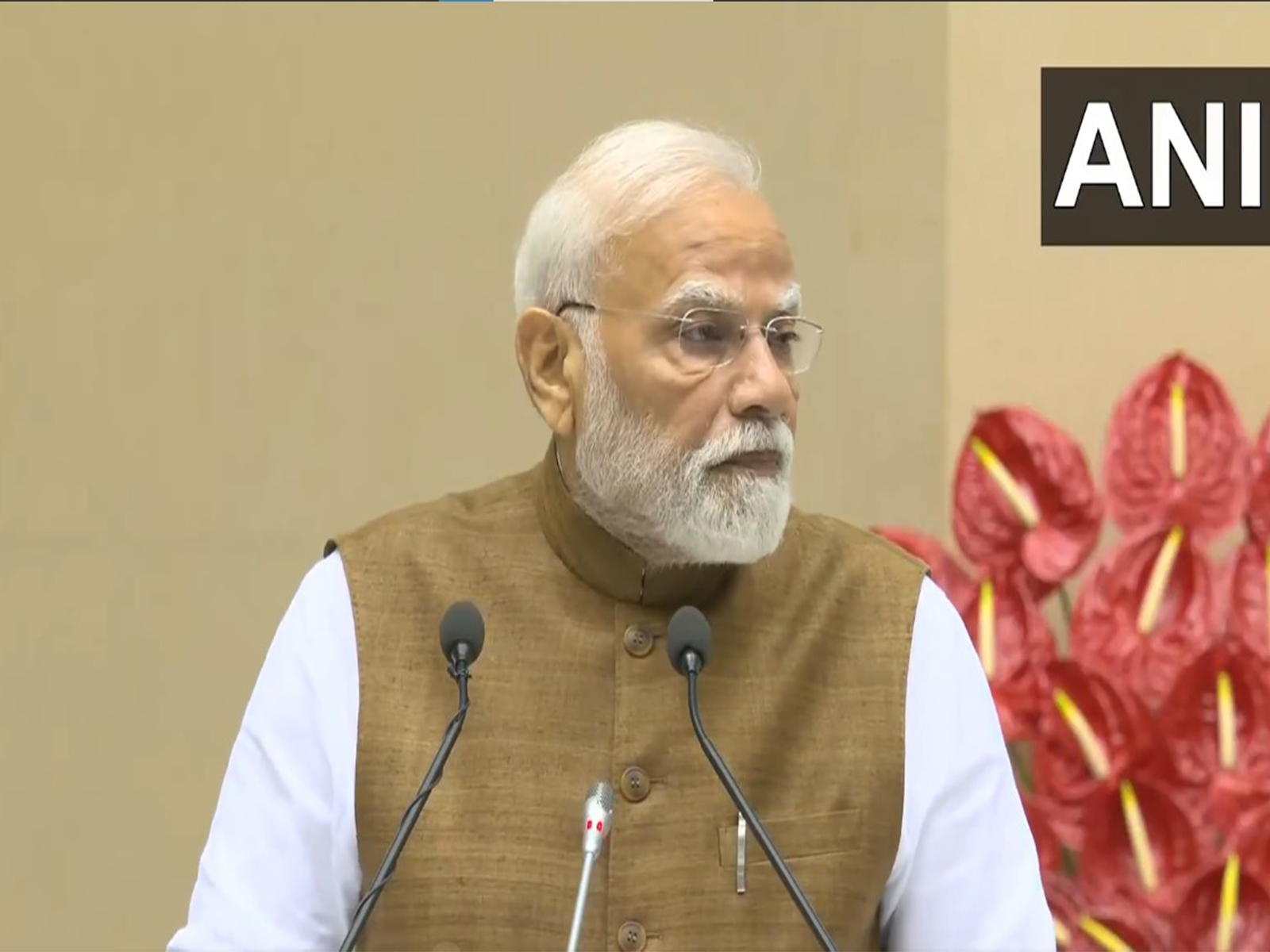Gyan Bharatam Mission: PM Modi Launches New Chapter of India’s Knowledge Legacy
Shri Modi emphasized that India’s manuscripts are not relics but living records of philosophy, science, medicine, art, mathematics, and politics.

- Country:
- India
Prime Minister Shri Narendra Modi addressed the International Conference on Gyan Bharatam at Vigyan Bhawan, New Delhi, marking a historic moment in India’s cultural and intellectual renaissance. The event coincided with the recent announcement of the Gyan Bharatam Mission and the launch of its dedicated digital portal. In his keynote address, the Prime Minister emphasized that this mission is not a government program alone, but rather a national proclamation of India’s civilizational knowledge, culture, and consciousness.
Reviving India’s Golden Past
PM Modi highlighted that Vigyan Bhawan was today witnessing the resurgence of India’s golden past, rooted in thousands of years of wisdom, scholarship, and research by sages, acharyas, and intellectuals. He described manuscripts as “time machines” that connect modern society to ancient times when India thrived without material luxuries but with unmatched intellectual depth. Despite hardships, ancient Indians created grand libraries and centers of learning and left behind an invaluable manuscript heritage—of which nearly one crore manuscripts survive today.
Four Pillars of Knowledge Tradition
The Prime Minister elaborated on India’s civilizational strength built upon four foundational pillars:
-
Preservation – safeguarding the Vedas and scriptures with remarkable authenticity through oral traditions.
-
Innovation – advancing sciences like Ayurveda, metallurgy, astronomy, and mathematics across generations.
-
Addition – enriching existing works, such as various Ramayanas, commentaries on Upanishads, and philosophical interpretations like Dvaita and Advaita.
-
Adaptation – engaging in self-reflection, reforming traditions, and embracing new knowledge through discussions and Shastrarth.
Manuscripts as Civilizational Treasures
Shri Modi emphasized that India’s manuscripts are not relics but living records of philosophy, science, medicine, art, mathematics, and politics. He cited examples such as:
-
Bakhshali Manuscript – evidence of the ancient use of zero and mathematics.
-
Charaka Samhita and Sushruta Samhita – foundational Ayurvedic texts.
-
Sulva Sutra – contributions to geometry.
-
Natya Shastra – deep insights into human emotions and performing arts.
-
Kautilya’s Arthashastra – India’s understanding of political science and economics.
He noted that manuscripts exist in nearly 80 languages, including Sanskrit, Prakrit, Kashmiri, Bengali, Marathi, Malayalam, and Assamese, underlining India’s unity in diversity.
International Recognition and Heritage Preservation
The Prime Minister shared personal experiences from visits abroad. In Kuwait, he was presented with documents showcasing India’s ancient maritime trade, while in Mongolia, manuscripts were digitized in India and respectfully returned. He emphasized that the world now trusts India as a custodian of heritage, with hundreds of stolen idols and manuscripts being repatriated in recent years.
Harnessing Technology for the Future
PM Modi called for digitization, AI integration, and global collaboration to unlock new possibilities:
-
AI-powered analysis will enable deeper study of manuscripts.
-
Digitized archives will prevent intellectual piracy and patent misuse of traditional knowledge.
-
The global cultural and creative industry, worth $2.5 trillion, can benefit from India’s ancient knowledge systems.
-
Youth and researchers will gain opportunities for innovation in technology, culture, and academia.
Collective National Effort
The Prime Minister recognized the contributions of institutions such as the Asiatic Society of Kolkata, Bhandarkar Oriental Research Institute, and Saraswati Mahal Library, noting that over ten lakh manuscripts have already been digitized. He expressed gratitude to families and organizations who have donated their personal heritage to the national cause.
India’s Knowledge Diplomacy
PM Modi informed that the mission also builds on international cultural dialogues:
-
Reprinting and gifting of the Mongolian Kanjur to monasteries in Mongolia and Russia.
-
MoUs with universities in Thailand and Vietnam for manuscript digitization.
-
Preservation of manuscripts in languages like Pali, Lanna, and Cham, strengthening cultural ties across Asia.
A National Call to Action
Concluding his speech, the Prime Minister appealed to the youth and academia to actively participate in the Gyan Bharatam Mission, blending tradition with modern technology. He stressed that knowledge should not remain confined but should be shared with the world as India’s civilizational gift. He declared that this initiative is a step towards Atmanirbhar Bharat and a stronger cultural identity, ensuring that India’s ancient wisdom becomes a symbol of national pride and global leadership.
Union Ministers Shri Gajendra Singh Shekhawat and Shri Rao Inderjit Singh, among other dignitaries, were present at the occasion.










